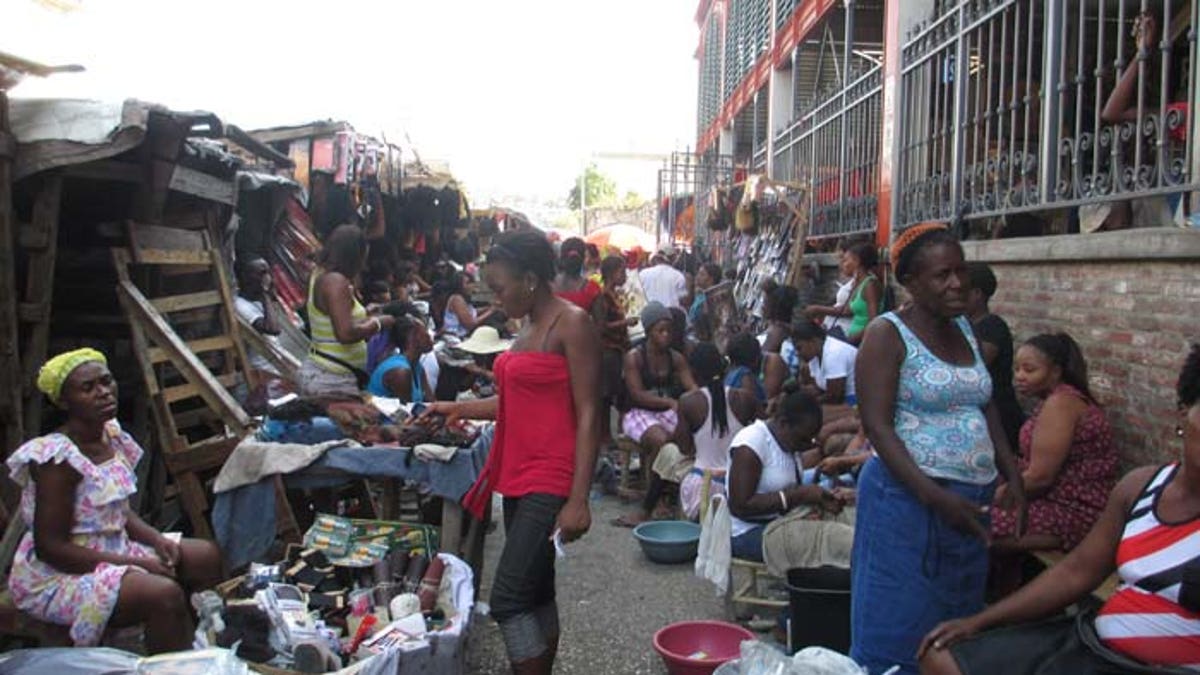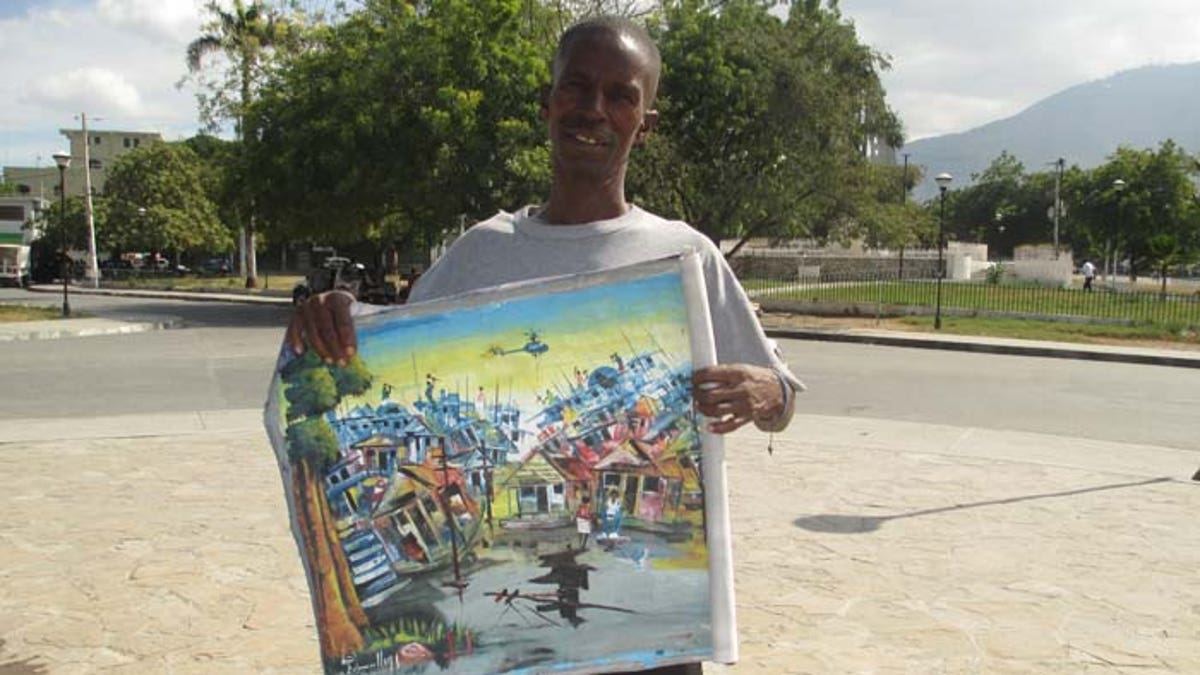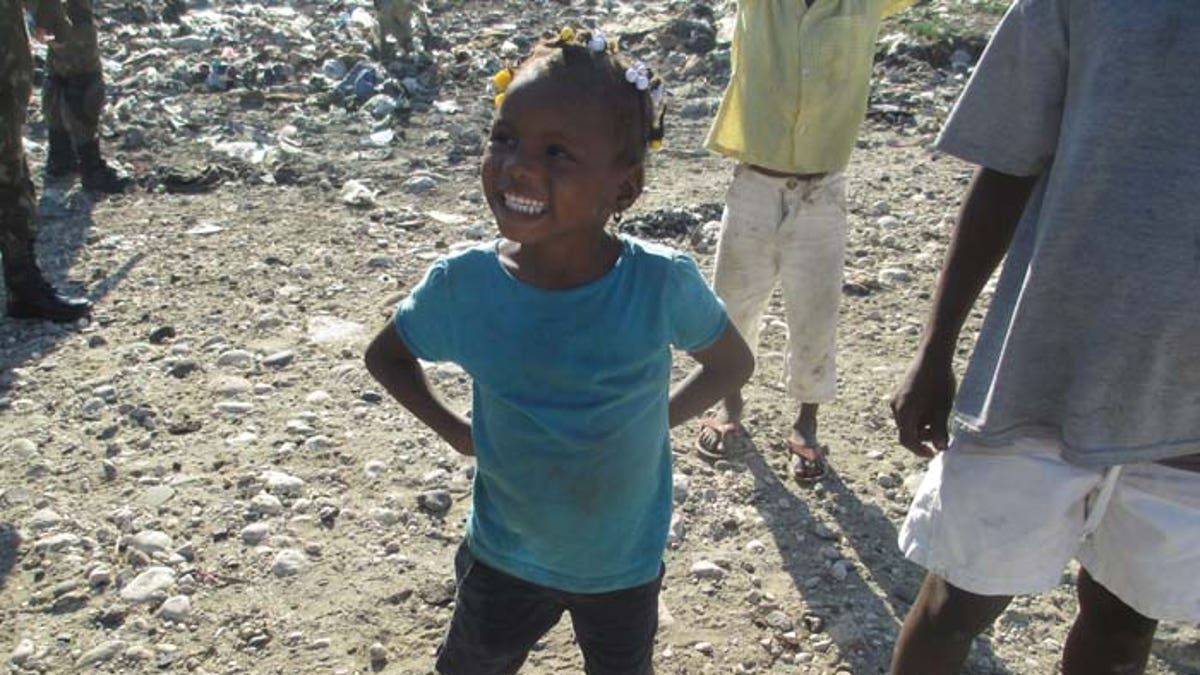
Haitians gather in the capital's downtown, where signs of economic life have begun to appear. (FoxNews.com)
PORT-au-PRINCE, Haiti – In the five years since “the Earth shook and buildings fell,” several Haitians say the island nation’s recovery inches along amid wrenching poverty, food shortages and widespread misery despite billions in international aid and the permanent presence of a UN aid force.
The Jan. 12, 2010, earthquake and its aftermath killed more than 200,000 people, left nearly 900,000 homeless and buried the impoverished nation under rubble and dead bodies. The magnitude 7 temblor, made all the more destructive by Haiti’s shaky infrastructure, was one of the most savage and destructive natural disasters of modern times.
“Haiti is very dangerous now. The problem is survival. The government is the devil.”
There are signs of hope, although, survivors say half a decade later, people are still suffering.
“We cannot eat. We cannot drink,” said Junior, a Port-au-Prince artist. “The first thing we need is to feed people. Things are not better.”
The years also have not obscured the painful memories, borne by all who survived the devastating event as well as those who came to help – and stayed. First responders tell of arriving in the capital, just 25 miles from the quake’s epicenter, and performing amputations to free victims from collapsed buildings. As a desperate recovery effort unfolded, an equally urgent endeavor to feed and house the survivors captured the world’s attention.
“The Earth shook and buildings fell, as if our country was to be no more,” recalled Jean-Claude, a resident of Leogane.
Money poured in from around the world, and a UN peacekeeping force, already entrenched on the island following a civil war years earlier, pivoted to aiding the rebuilding effort. In addition to the staggering death toll and demolished homes, key government buildings were destroyed. The Presidential Palace, National Assembly Building, UN Peacekeeping headquarters, and Port-au-Prince Cathedral were all reduced to rubble. The main prison was wrecked, freeing some of the nation’s most notorious figures, who quickly compounded the catastrophe.

A massive tent city soon emerged and the Champs-du-Mars was covered with thousands of these makeshift homes. Violence and misery were rampant.
The earthquake was only the latest of natural and man-made disasters to befall the jinxed nation. Born of blood, Haiti achieved its independence from France in 1804. Since then, a string of dictators, foreign intervention and natural disasters have plagued the former colony of Santo Domingo. The earthquake was only the latest of natural and man-made disasters to befall the jinxed nation, but perhaps was also the cruelest.
One of the first sights to greet visitors -- those who make the seven-hour drive through mountainous roads from Cap-Haitien to the capital -- is the empty site where the Presidential Palace once stood. While the north coast continues to struggle with the ongoing cholera epidemic, it was here in the south that virtually all of the earthquake damage had taken place.
But there is clear evidence the recovery is succeeding. Visitors to the Champs-de-Mars will not see a single person living in a tent. Monuments to the nation’s heroes are now clearly visible again, as the nation’s pride is slowly being restored. ATMs, a rare sight just a few years ago, are in abundance in Port-au-Prince, and new banks have sprung up all around the downtown area.
“Much still needs to be done, but yet we have come so far,” cheerfully observed Roderic, a motorcycle taxi driver.
Haitian President Michel Martelly, elected in 2011 on the promise of restoring hope, dreams of recapturing Haiti’s mid-20th century glory as a tourist destination. Several new hotels have been built or are under construction, including the five-star Marriot set to open later this year.

Still, beneath the surface runs an undercurrent of pessimism and mistrust of the government. Cynical residents say age-old Haitian problems remain, regardless of the clearing of rubble, the disappearance of tent camps, and the new construction now underway.
“Haiti is very dangerous now,” Junior said. “The problem is survival. The government is the Devil.”
A Haitian-American hotelier made similar observations regarding recent protests focused on ousting Martelly and what some see as an attempted power grab. Citizens who have lived their lives under the corrupt regimes of Francois “Papa Doc” Duvalier and his son, Jean-Claude “Baby Doc” Duvalier, as well as Jean-Bertrand Aristide, say taking to the streets is the only hope for keeping government honest,
“These demonstrations are a direct reflection of Martelly,” he said. “You don’t want a political system where the checks are in the streets.”
The hotelier was skeptical that the nation is making meaningful progress in its recovery from the earthquake of 2010.
“The one thing I see that is better, is in certain parts of town it is cleaner,” he said. “USAID has been very aggressive in promoting cleanliness and infrastructure.”
